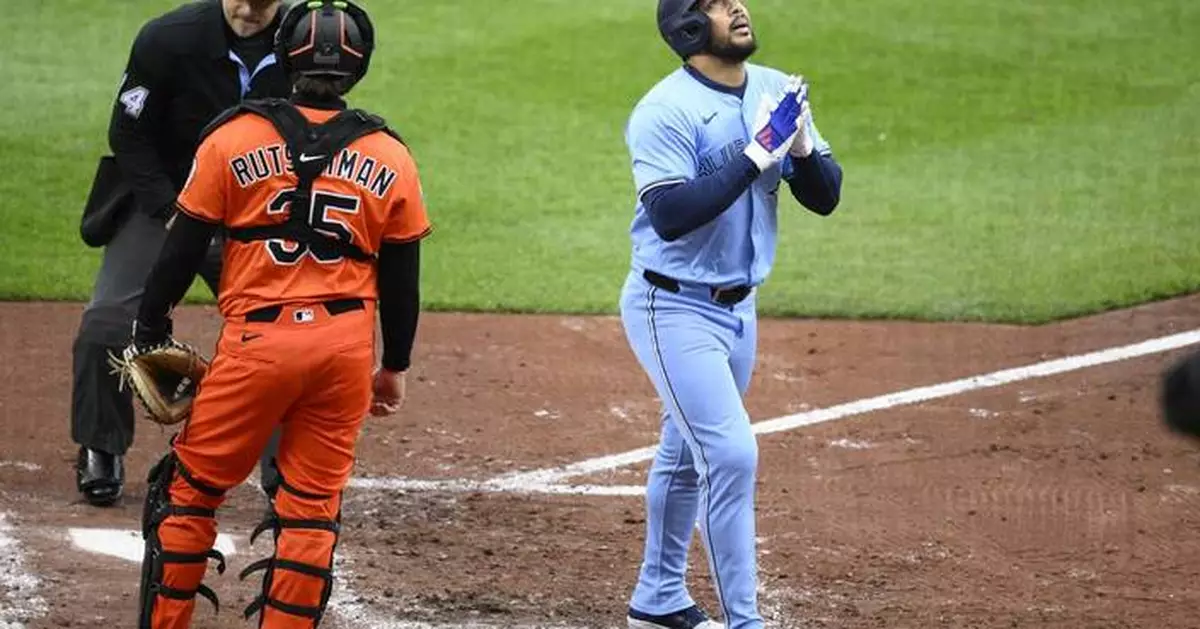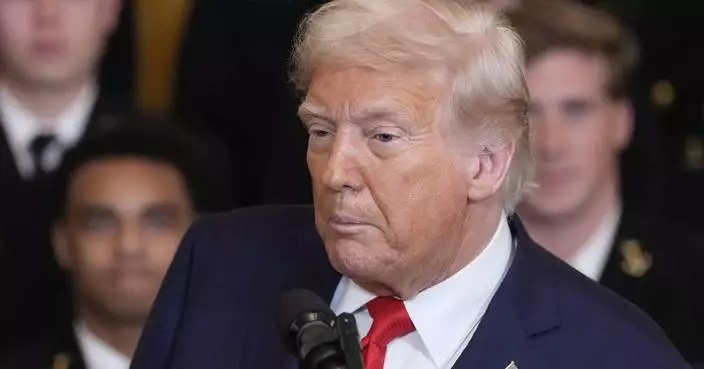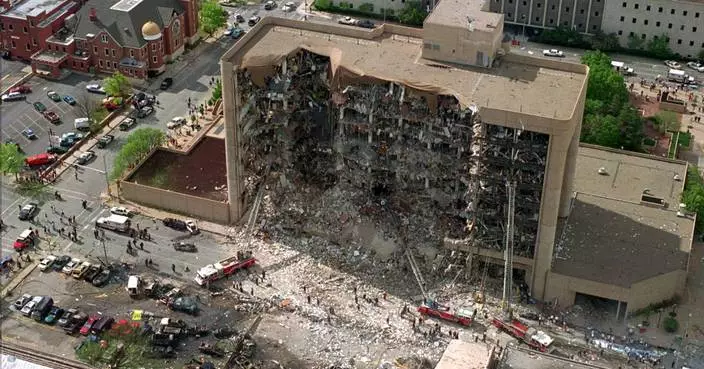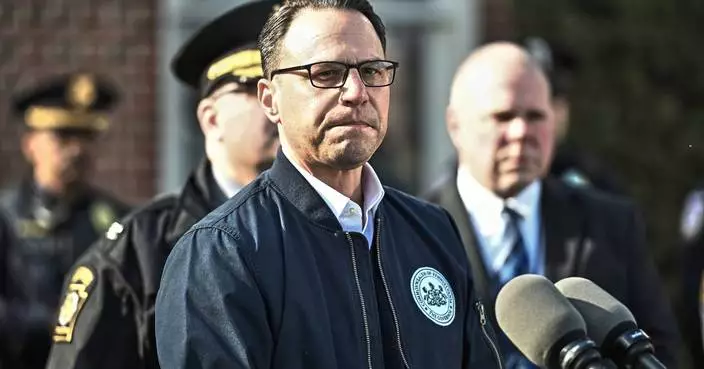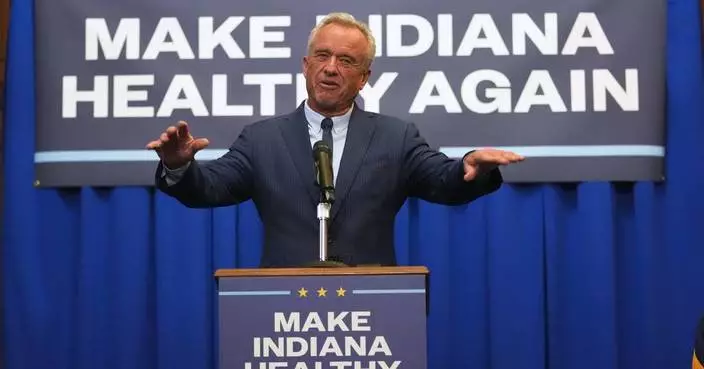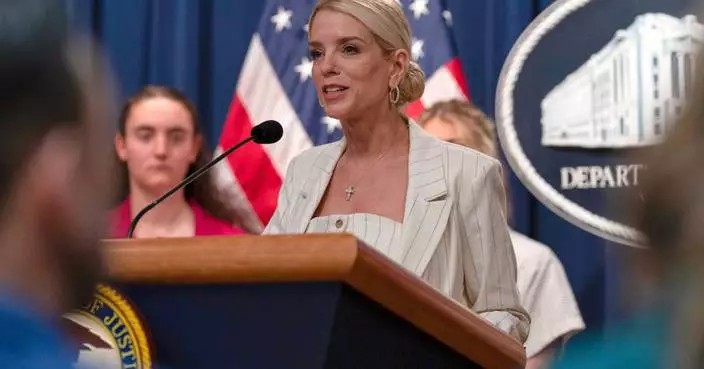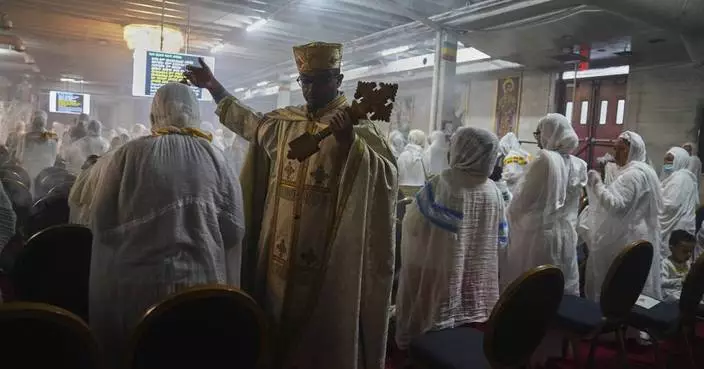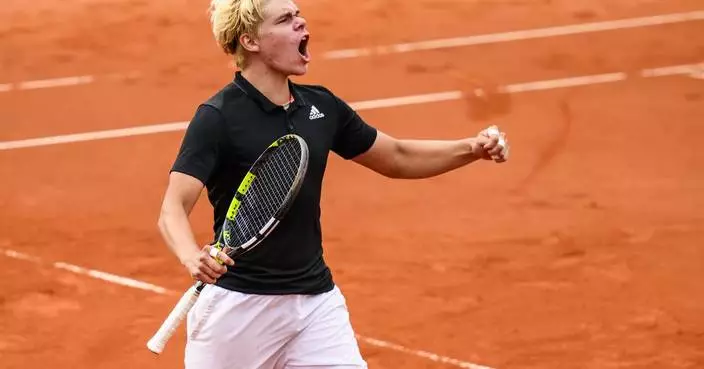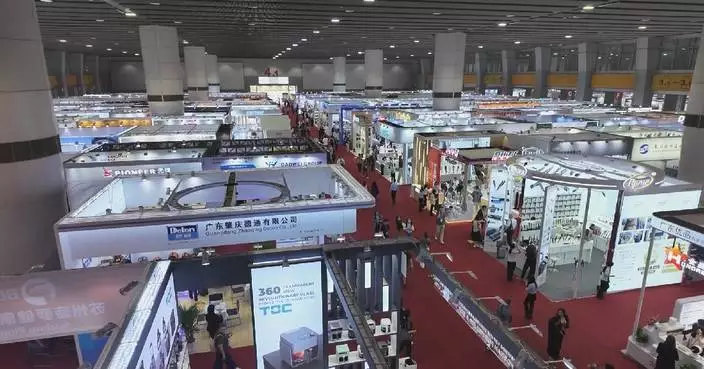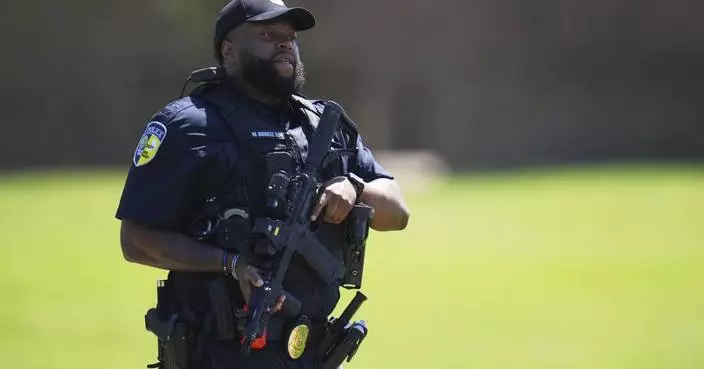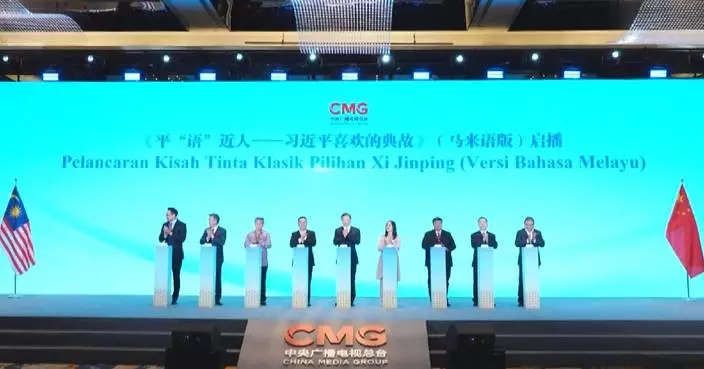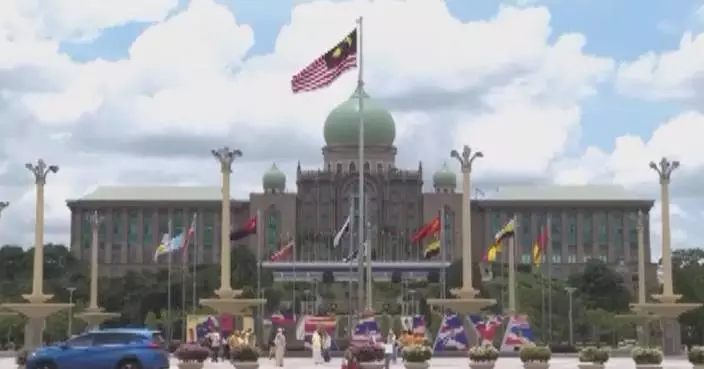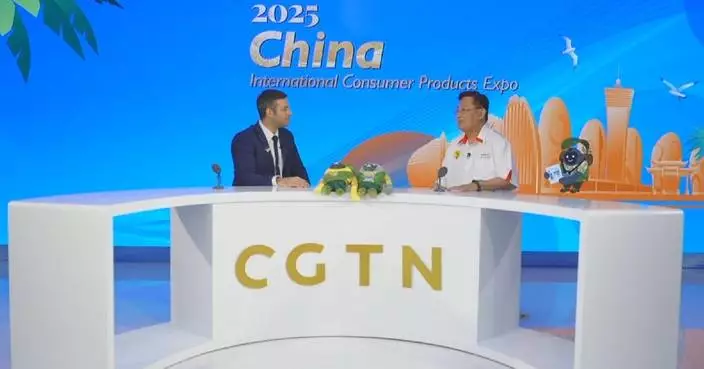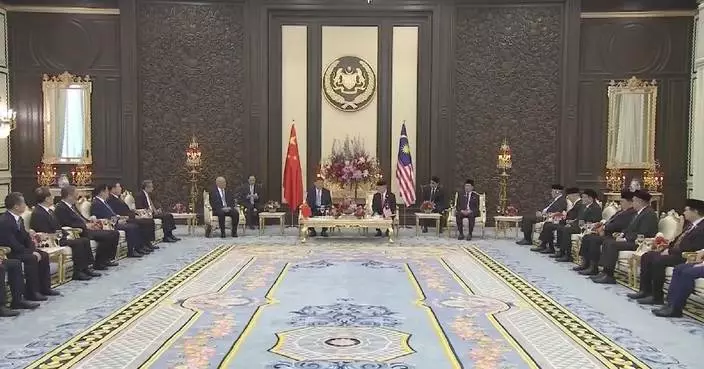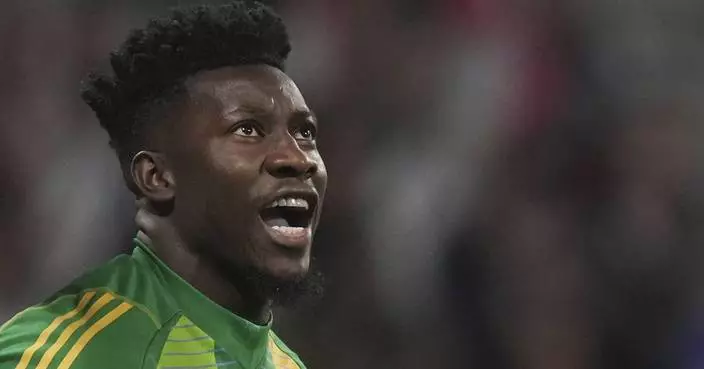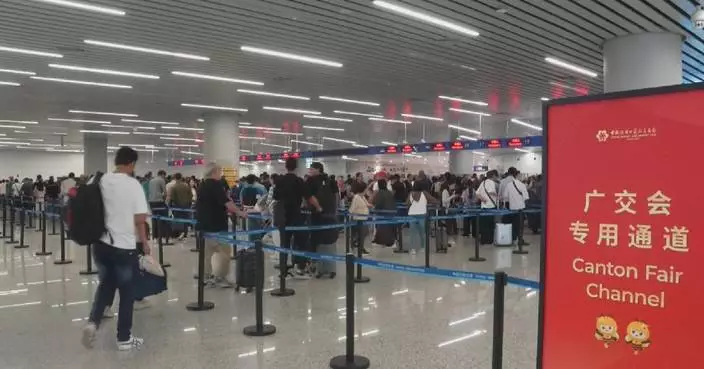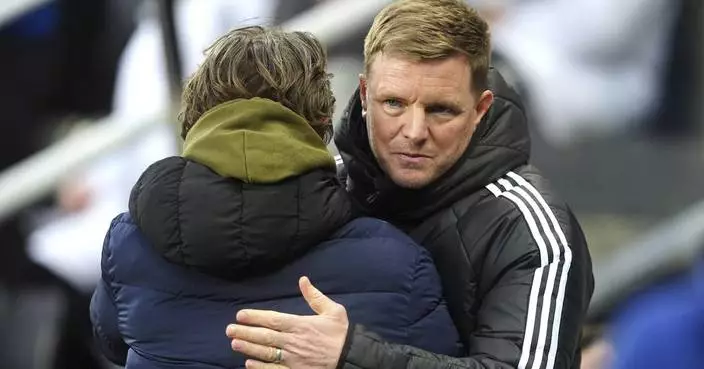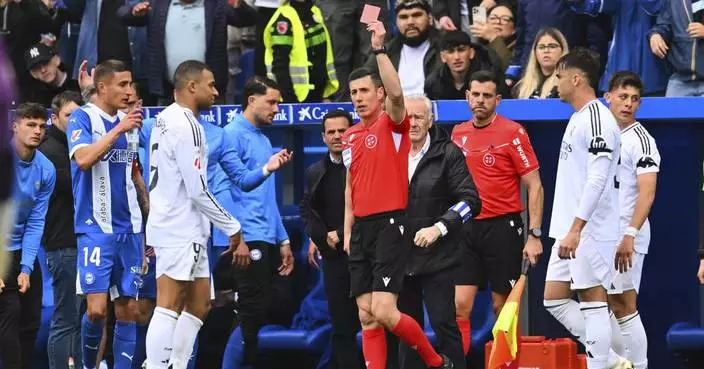BALTIMORE (AP) — Anthony Santander finally homered for the Toronto Blue Jays.
All it took was a trip to his former ballpark.
Santander returned to Camden Yards on Saturday, and after receiving a nice ovation from the Baltimore crowd — and a video tribute soon after — the ex-Orioles slugger went deep in the third inning. His solo homer gave Toronto a 3-0 lead, although Baltimore ultimately rallied to win 5-4.
“It was awesome to hit a homer here," Santander said. "Hopefully we can continue hitting more.”
After spending his first eight seasons with the Orioles, including a 44-homer campaign last year, Santander left for the AL East-rival Blue Jays, signing a $92.5 million, five-year contract. He's started slowly this year, and after receiving a nice cheer from the crowd, he grounded out in the first inning.
“When you feel that the fans really love you, they really like you, so it means a lot," Santander said. "Especially that they saw me grow up here as a player, and as a person.”
After the bottom of the first, Santander received a tribute on the scoreboard. Then in the third, he hit a drive to right field through the chilly April air off Tomoyuki Sugano. That was his third RBI of the season.
“I’m sure he can take a little bit of a deep breath," Blue Jays manager John Schneider said. “Cool moment here. Really cool that they recognized him the way they did and rightfully so, for what he did here.”
Santander hit another deep flyball in the fifth, but it was caught on the warning track. He finished 1 for 4, raising his average to .190 on the season.
Santander is no stranger to slow starts. He's a career .211 hitter in April. But he made good contact Saturday.
“I always go with that mentality, hit the ball hard," Santander said. "It took me 15 games, but so happy that I did it.”
AP MLB: https://apnews.com/hub/mlb

Toronto Blue Jays' Anthony Santander, right, celebrates after his home run with George Springer (4) during the third inning of a baseball game against the Baltimore Orioles, Saturday, April 12, 2025, in Baltimore. (AP Photo/Nick Wass)
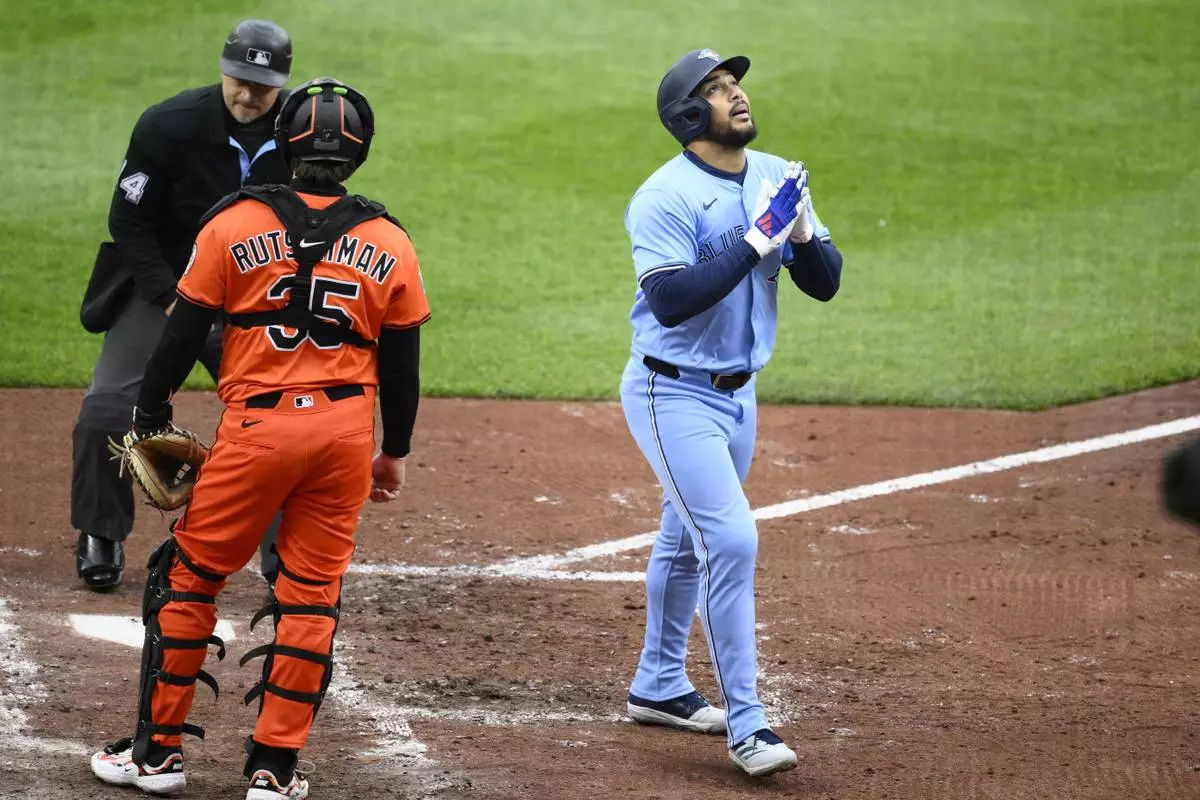
Toronto Blue Jays' Anthony Santander, right, celebrates his home run next to Baltimore Orioles catcher Adley Rutschman (35) during the third inning of a baseball game, Saturday, April 12, 2025, in Baltimore. (AP Photo/Nick Wass)
DUBAI, United Arab Emirates (AP) — Iran confirmed Wednesday that the next round of nuclear talks with the United States will be held in Rome after earlier confusion over where the negotiations would be held.
The announcement by Iranian state television came as Iran 's president formally approved the resignation of one of his vice presidents who served as Tehran's key negotiator in its 2015 nuclear deal with world powers, just as the head of the United Nations' nuclear watchdog arrived in the Islamic Republic on Wednesday.
President Masoud Pezeshkian's announcement late Tuesday regarding Mohammad Javad Zarif preceded the state TV announcement, which said Oman will again mediate the talks. Oman's foreign minister served as an interlocutor between the two sides at talks last weekend in Muscat, the sultanate's capital.
Officials initially on Monday identified Rome as hosting the negotiations, only for Iran to insist early Tuesday they would return to Oman. American officials so far haven’t said where the talks will be held, though Trump did call Oman’s Sultan Haitham bin Tariq on Tuesday while the ruler was on a trip to the Netherlands.
Meanwhile, the visit by Rafael Mariano Grossi, the head of the International Atomic Energy Agency, may include negotiations over just what access his inspectors can get under any proposed deal.
The stakes of the negotiations couldn’t be higher for the two nations closing in on half a century of enmity. U.S. President Donald Trump repeatedly has threatened to unleash airstrikes targeting Iran’s nuclear program if a deal isn’t reached. Iranian officials increasingly warn that they could pursue a nuclear weapon with their stockpile of uranium enriched to near weapons-grade levels.
Zarif served as a key supporter of Pezeshkian in his election last year but drew criticism from hard-liners within Iran's Shiite theocracy, who long have alleged Zarif gave away too much in negotiations.
In March, Zarif tendered his resignation to Pezeshkian. However, the president did not immediately respond to the letter. Zarif has used resignation announcements in the past in his political career as leverage, including in a dispute last year over the composition of Pezeshkian’s Cabinet. The president had rejected that resignation.
But on late Tuesday, a statement from the presidency said Pezeshkian wrote Zarif a letter praising him but accepting his resignation.
“Pezeshkian emphasized that due to certain issues, his administration can no longer benefit from Zarif’s valuable knowledge and expertise,” a statement from the presidency said.
The president in a decree appointed Mohsen Ismaili, 59, to be his new vice president for strategic affairs. In Iran's political system, the president has multiple vice presidents. Ismaili is known as a political moderate and a legal expert.
Grossi arrived in Tehran for meetings with Pezeshkian and others.
Since the nuclear deal’s collapse in 2018 with Trump's unilateral withdraw of the U.S. from the accord, Iran has abandoned all limits on its program, and enriches uranium to up to 60% purity — near weapons-grade levels of 90%.
Surveillance cameras installed by the IAEA have been disrupted, while Iran has barred some of the Vienna-based agency’s most experienced inspectors. Iranian officials also have increasingly threatened that they could pursue atomic weapons, something the West and the IAEA have been worried about for years since Tehran abandoned an organized weapons program in 2003.
Any possible deal between Iran and the U.S. likely would need to rely on the IAEA's expertise to ensure Tehran's compliance. And despite tensions between Iran and the agency, its access has not been entirely revoked.
Meanwhile, Iran's Foreign Minister Abbas Araghchi on Wednesday warned the U.S. about taking contradictory stances in the talks.
That likely refers to comments from U.S. Mideast envoy Steve Witkoff, who this week initially suggested a deal could see Iran go back to 3.67% uranium enrichment — like in the 2015 deal reached by the Obama administration. Witkoff then followed up with saying "a deal with Iran will only be completed if it is a Trump deal.”
“Iran must stop and eliminate its nuclear enrichment and weaponization program,” he wrote on the social platform X. “It is imperative for the world that we create a tough, fair deal that will endure, and that is what President Trump has asked me to do.”
Araghchi warned America about taking any “contradictory and opposing stances” in the talks.
“Enrichment is a real and accepted issue, and we are ready for trust building about possible concerns," Araghchi said. But losing the right to enrich at all "is not negotiable.”
Karimi reported from Tehran, Iran.
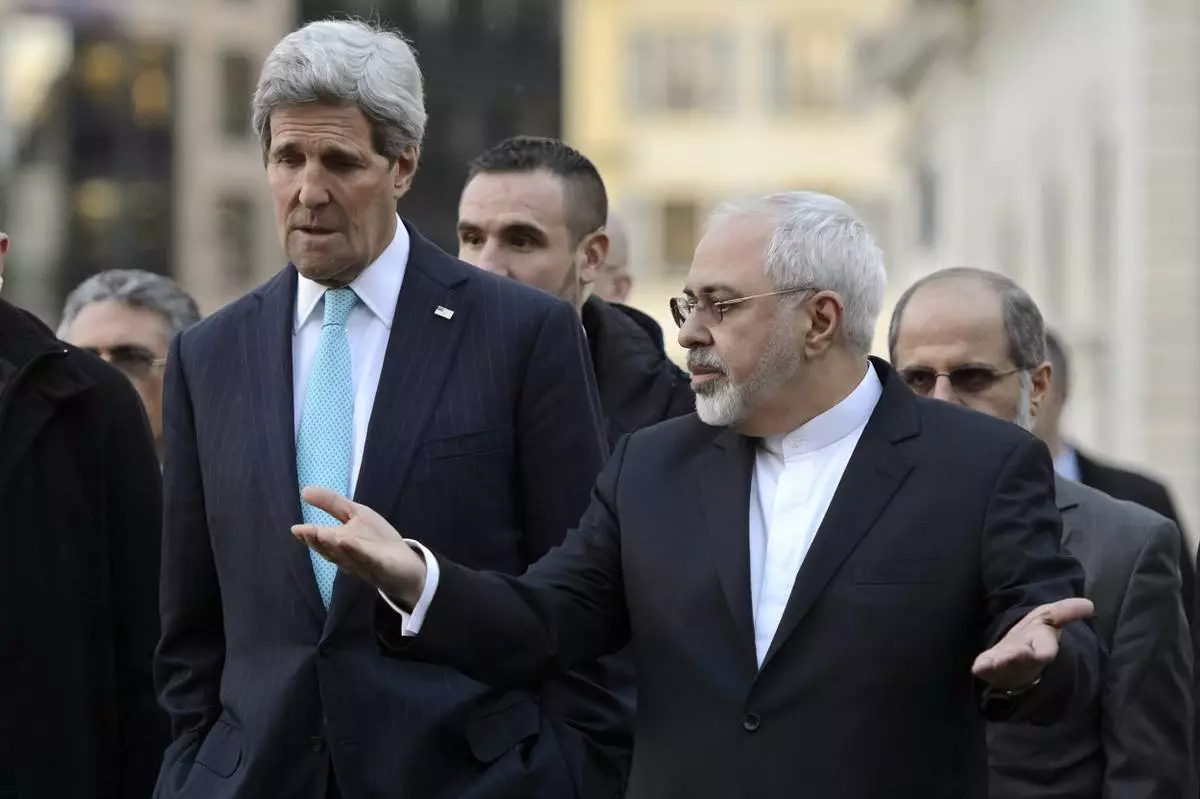
FILE - US Secretary of State John Kerry, left, listens to Iranian Foreign Minister Mohammad Javad Zarif, as they walk in the city of Geneva, Switzerland, Jan. 14, 2015, during a bilateral meeting ahead of the next round of nuclear discussions. (AP Photo/Keystone, Martial Trezzini, File)
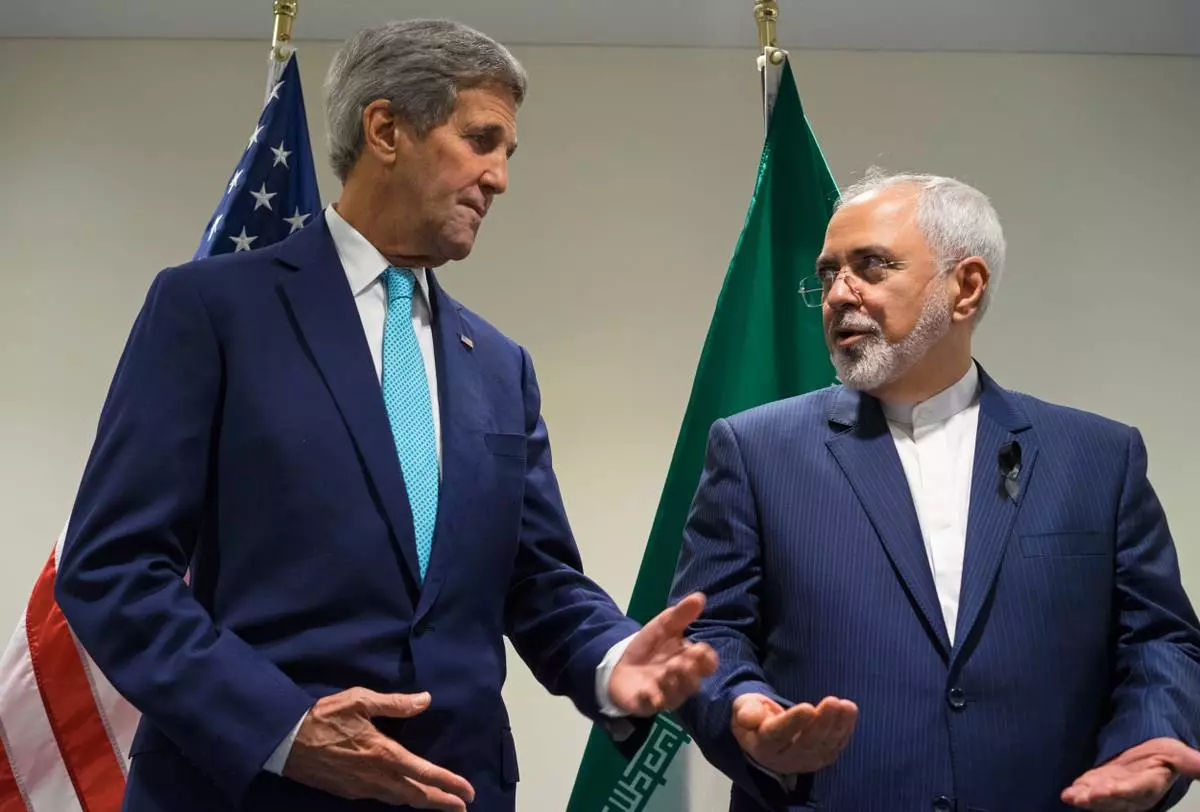
FILE - U.S. Secretary of State John Kerry, left, meets with Iranian Foreign Minister Mohammad Javad Zarif at United Nations headquarters, on Sept. 26, 2015. (AP Photo/Craig Ruttle, File)
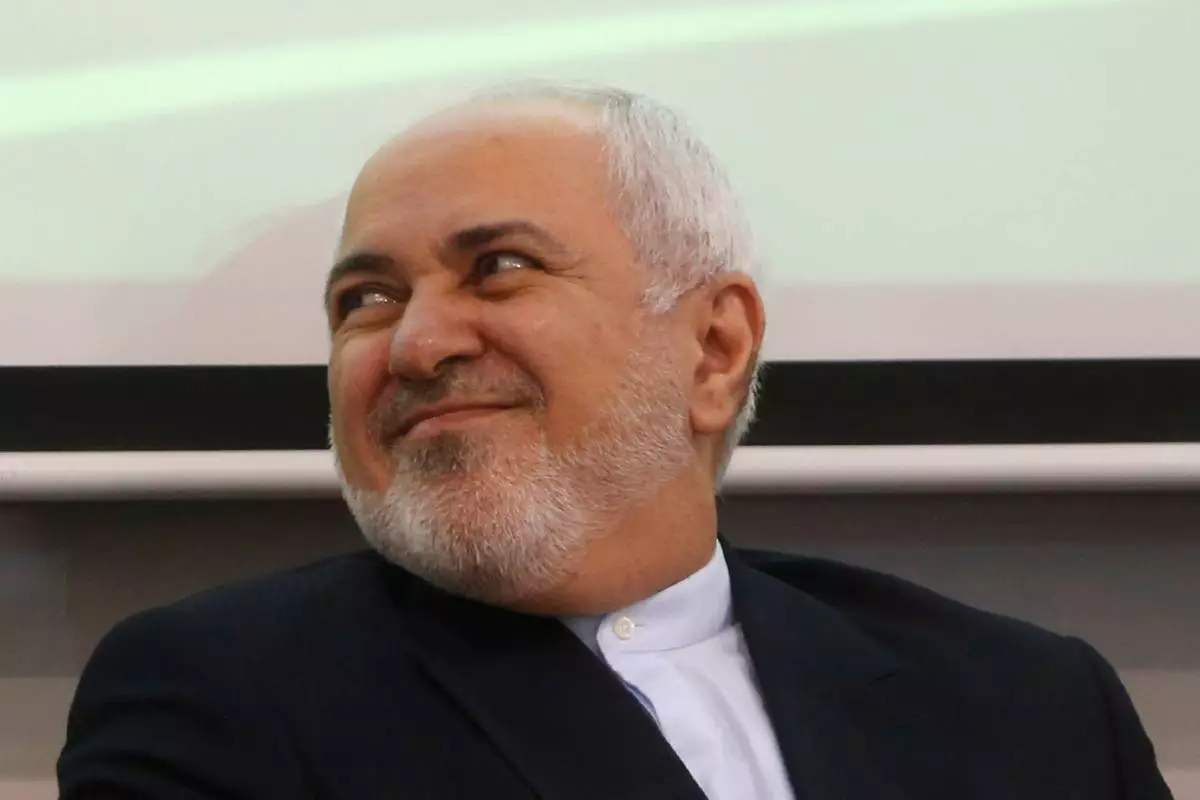
FILE - Iran's Foreign Minister Mohammad Zarif smiles during a meeting with students on a climate change forum at the Gabriel René Moreno Autonomous University, in Santa Cruz Bolivia, on July 23, 2019. (AP Photo/Juan Karita, File)




